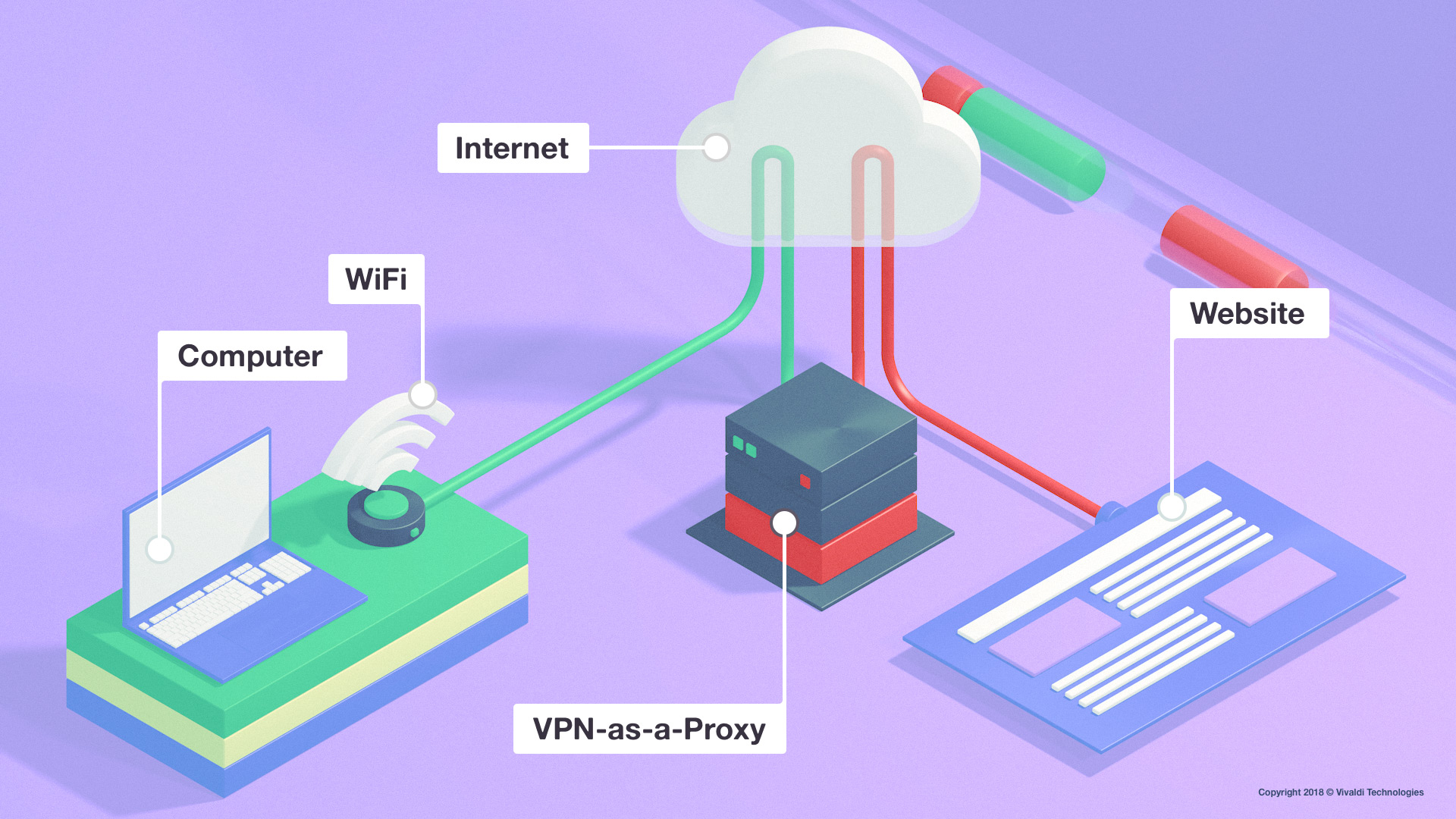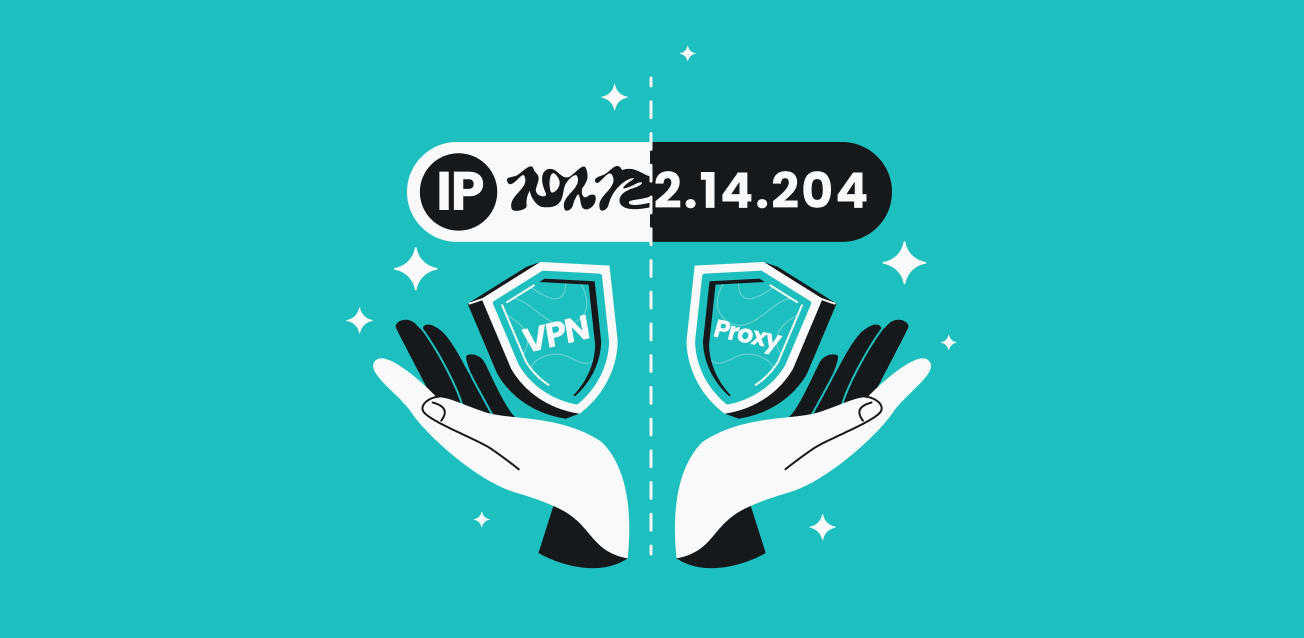Featured
Table of Contents
Proxy Server Vs Vpn: What's The Difference?
In case if you are already utilizing a VPN, then connecting to a site or app utilizing a proxy server would be unneeded. You can use a VPN and proxy together to add an additional layer of anonymity to your network connection. Nevertheless, you require to keep in mind that that you need to have a stable Web connection.


If the server speed is excellent, then you can purchase it. It is excellent that you select a VPN having more proxy servers at several locations.

All communication over the internet occurs via information packages. Applications and user devices exchange information in the kind of requests and actions. A client sends out a request to any application or web server by utilizing the server's IP address, and the server sends back the response to the client's IP address.
Proxy Vs Vpn What Are The Main Differences
The proxy server introduces another layer in between the customer and the server. You can utilize a proxy server prior to the customer (forward proxy) or your application server (reverse proxy). These techniques work as follows. Here's how customers and servers interact when you use a forward proxy server: When the customer sends out a web demand, it first goes to the client's proxy server The proxy server changes the client's IP address with its own IP address The proxy server forwards the web request to the application server The application server processes the request and sends out the action data back to the proxy server The proxy server forwards the action back to the customer When you use a forward proxy server, the server is not aware of the actual customer and believes the proxy is the client.

Something failed. Wait a minute and attempt once again Try again.
VPNs are really similar. Like proxies, they mask your IP address and send all your internet traffic to a remote server so that you can access geo-restricted material but also browse the web anonymously. A VPN service works on the operating system level. This indicates that it reroutes all your traffic, whether it is coming from your web browser or a background app.
Vpn Vs. Proxy Vs. Smart Dns: What's The Difference?
In this way, a VPN prevents your activity from being tracked by your ISP, federal government and any hackers attempting to intercept your device. The primary difference between them is that proxies will just reroute application traffic, while VPNs can do this for the entire operating system.
While encryption is absolutely a good idea, the time it takes to encrypt internet traffic between your device and a remote server may result in a slower connection. The location of the VPN server can likewise obstruct performance, however premium services tend to fix these problems and if it feels like an issue, we 'd recommend that you obtain the services of the fastest VPN you can.
Like VPNs, they'll require some time to reroute your web traffic. What's more, proxy services are frequently totally free to download and will likely be flooded with traffic from others.
Proxies Vs Vpns: What's Better In 2023
Things like an incorporated kill switch, around the world servers, DNS leakage security and running system-level security imply they're more powerful than proxies. Which should you choose? If you merely desire to conceal your IP address for anonymous web surfing and bypassing geo-restrictions, proxies are fine. That said, it deserves noting that VPNs are not only more secure however aren't restricted to an app-level and have a range of other functions.
Compare today's finest overall VPNs.
Nowadays, lots of web users compare a proxy vs VPN, wondering what they need to use when searching to secure themselves. In 2020, 84% of consumers said they cared about their privacy and information, and 80% wanted to act to secure it. Virtual Private Networks (VPNs) and proxies are a prospective service since they add an additional layer between an internet browser and any information tracking company or government.
Proxy Vs. Vpn: Which One Is Suitable For You?
With just the technical definitions, it can be challenging for an average user to inform a VPN apart from a proxy. To assist you comprehend how a VPN is different from a proxy server, we've highlighted the major differences comparing VPNs with proxies relating to security, privacy, cookies, expense, and speed.
Only after the information has been sent through to the customer does it decrypt the information for other programs to utilize. So not just is your identity concealed from the site or service you check out, your ISP, or perhaps the network does not understand what information you're filling either. All they can see is that you're filling encrypted data from a VPN.
Even if you're on an open WIFI network, the encryption protects your information from being intercepted by malicious hackers. And since the VPN utilizes end-to-end file encryption, your ISP, router, company, or government can't access your data either. That becomes part of the reason why the Chinese government is attempting to restrict the public's access to VPNs.
Proxy Vs Vpn: What Are Their Differences And Which One ...
And with excellent factor. Since of this brand-new law, practically every site that tracks you with cookies has to ask for your permission.

Cookies will get downloaded to your computer through the proxy server or VPN. With a VPN, the cookie will error the VPN's IP address for your own, which will provide some level of defense against fingerprinting and other digital tracking methods.
When you start using a VPN or proxy server, you should clear all the cookies on your computer system. If not, existing cookies may disrupt the added layer of personal privacy. The website will connect it with your initial location and IP address and use it to assist in your device's fingerprinting.
Latest Posts
Vpn.group: We Know Vpn - Reviews And Information -
5 Best Business Vpns In 2023 - Most Secure And Reliable
10 Best Vpn Services For Startups 2023 - Truic